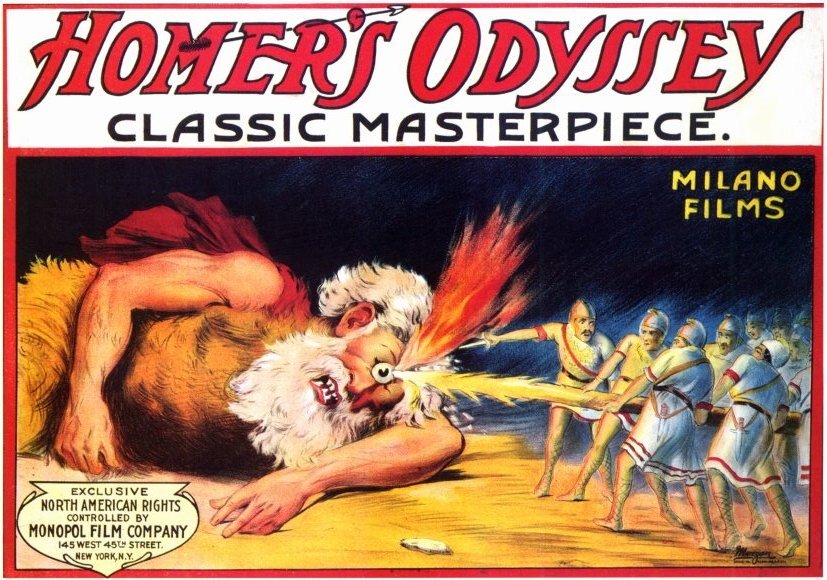My knowledge of the Greek classics is limited to The Oresteia, Aristotle’s Poetics, Euripides’ Medea, and whatever I’ve picked up reading in or around Joyce. That is to say, I am no classical scholar and would never have received a degree 200 years ago. But I know a bit. I have not read any of The Iliad. I found a copy of Fagles’ translation of the Odyssey for a quid and decided to pick it up. I’ve found copies before but decided not to bite because I was worried about public domain translations being dense and full of archaisms. I will try Pope’s translation some other time. Considering that I occasionally have the nerve to call myself a poet, not having read any Homer is a pretty big gap in my knowledge, I should be ashamed, hand in my badge, etc. I am about two books in to The Odyssey so far, here are some of my thoughts:
- The (excellent) introduction by Bernard Knox mentions that Dante, despite featuring Homer in his Divine Comedy and talking about him at length, never read him. Dante never read Homer. I know his excuses are probably better than mine, but I feel far less guilty about not having a command of the complete Shakespeare, never having finished a Dickens novel, not having read Crime and Punishment, so on.
- The introduction also mentions the epithets and stock phrases that Homer often attaches to nouns, proper or otherwise, “the winedark sea”. Homer would have used it to make up his hexameter but I first came across this kind of thing in Ulysses. Of course Joyce’s sea is snotgreen, scrotumtightening, but I hadn’t thought he’d taken from Homer stylistically as well as structurally, at least not like this.
- Wow the Greeks ate a lot. And so much meat! You will be hungry reading this poem. Hungry for fat goats, and oxen. Where can I get a fat goat in East Anglia?
- I held out for Fagles’ translation because he made The Oresteia very readable. So is this. The poem is only dense insofar as the material is dense, which is to say. not very. There are no frightful archaisms. Again, I am no classical scholar, but to someone who is curious and moderately literate, Fagles is wonderful to read. Ymmv.
- Again as per Knox’s introduction (read it, it’ll help), it really was a time when men were stronger, wittier, wiser. The gods counsel them directly and the mixing of gods in the affairs of men is a natural fact. This is so unlike anything remotely modern.
- If it is like anything modern it is like fantasy, be it film, videogame, novel. There are many things I recognise from modern media and it helps me feel familiar. I now know what a myrmidon is.
- Speaking of familiarity, if you’ve read Joyce, it’ll help. Good old Jimmy doesn’t follow the plot exactly, but it’s close enough that if you’re familiar with the plot of Ulysses, you’re basically familiar with the plot of The Odyssey.
- Penelope’s trick with the weaving and unweaving of the funeral shroud is so strange. It’s like something out of an absurdist comedy, but it’s presented with such sadness. I know the suitors are going to die and I look forward to it.
- I’m trying to just enjoy this the same way I’ve dipped in to The King James Bible, in the sense that I’m attempting to just drink from the source and further my knowledge and understanding, not tick it off on my list of The Canon so I can consider myself to be well read. I look forward to reading more.


